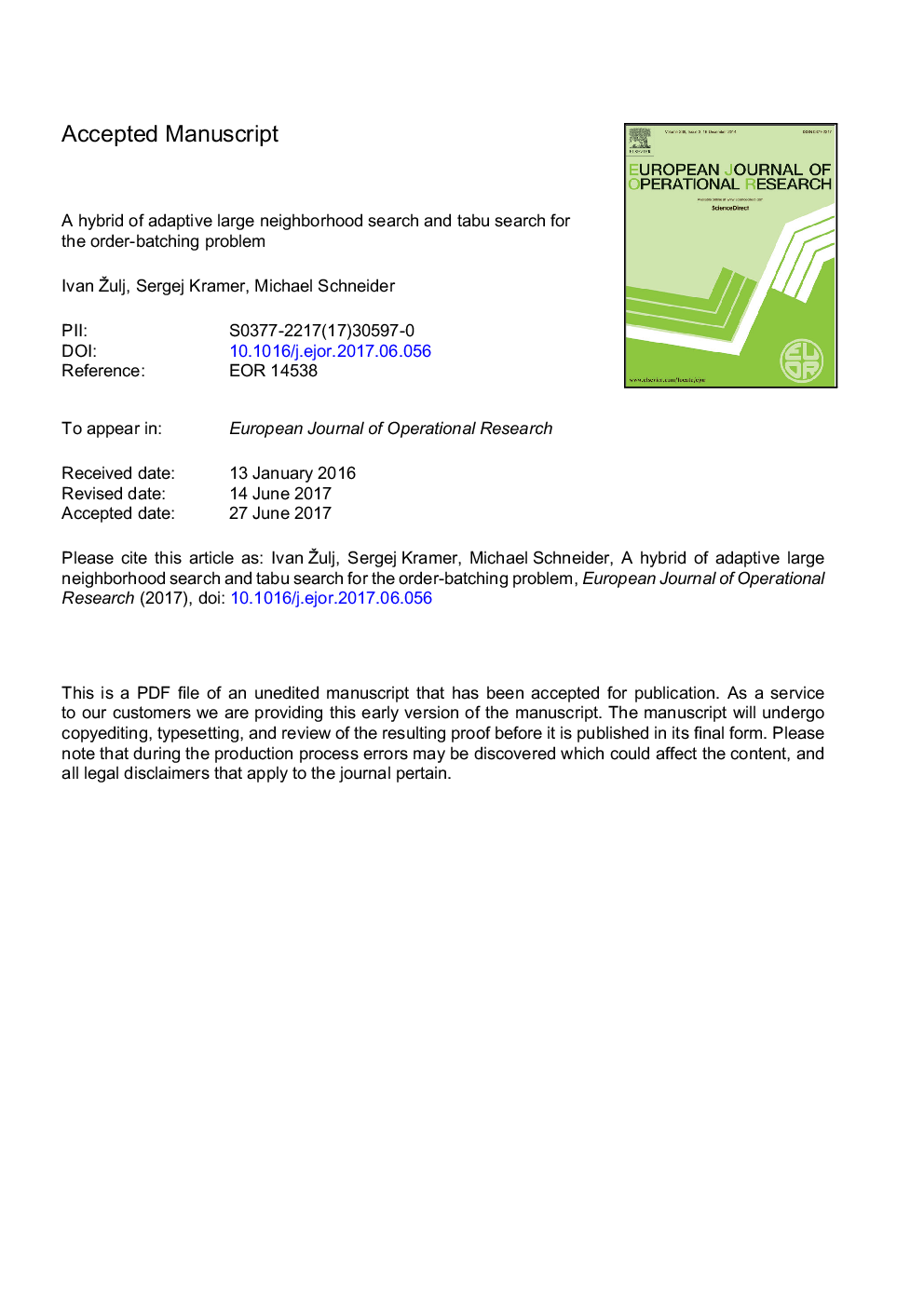ترجمه فارسی عنوان مقاله
ترکیبی از جستجو و جستجوی تابعی بزرگ سازگار با بزرگ برای مشکل مرتب سازی سفارش
عنوان انگلیسی
A hybrid of adaptive large neighborhood search and tabu search for the order-batching problem
| کد مقاله | سال انتشار | تعداد صفحات مقاله انگلیسی |
|---|---|---|
| 107543 | 2018 | 24 صفحه PDF |
منبع

Publisher : Elsevier - Science Direct (الزویر - ساینس دایرکت)
Journal : European Journal of Operational Research, Volume 264, Issue 2, 16 January 2018, Pages 653-664

